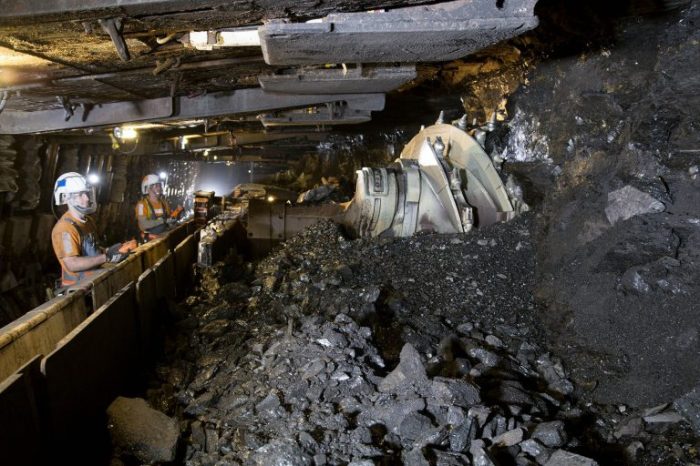As the mining frontier played a vital role in shaping the course of history, this discourse delves into its profound economic, technological, environmental, social, cultural, and political implications. Prepare to embark on an enlightening journey through the annals of mining’s transformative influence on civilizations.
From the economic booms and busts it ignited to the technological advancements it spurred, mining has left an indelible mark on local, regional, and global landscapes. Its impact on labor markets, immigration patterns, and environmental sustainability demands our attention.
Economic Impacts of the Mining Frontier

Mining has played a significant role in shaping local, regional, and national economies. The discovery of valuable mineral deposits often leads to economic booms, characterized by rapid population growth, increased investment, and job creation. However, these booms are often followed by busts when the mineral resources are depleted or market conditions change.The
mining industry has also played a crucial role in shaping labor markets and immigration patterns. Mining operations often require large numbers of workers, attracting people from diverse backgrounds and regions. This influx of workers can have both positive and negative impacts on local communities, including increased cultural diversity and economic growth, but also potential social tensions and competition for resources.
Technological Advancements in Mining
The mining industry has been a driving force behind technological innovation and advancements. The need to extract minerals efficiently and safely has led to the development of new technologies, including heavy machinery, automated systems, and remote sensing techniques. These innovations have significantly improved mining productivity and reduced the risks associated with mining operations.Mining
technologies have also had a broader impact on other industries and sectors. For example, advancements in drilling and excavation techniques have been applied in construction, infrastructure development, and environmental remediation projects.
Environmental and Social Consequences of Mining
Mining activities can have significant environmental impacts, including pollution, deforestation, and land degradation. Mining operations often release harmful pollutants into the air, water, and soil, which can have adverse effects on human health and ecosystems. Additionally, mining can disrupt natural habitats, displace communities, and destroy cultural heritage sites.The
social consequences of mining can also be severe. Mining operations can disrupt livelihoods, displace communities, and create health issues for workers and nearby residents. The influx of workers and economic activity associated with mining can also lead to social tensions and conflicts.
Cultural and Historical Significance of Mining

Mining has played a significant role in shaping societies and communities around the world. The discovery and exploitation of mineral resources have influenced cultural traditions, regional identities, and historical events. Mining has also been a major driver of economic development and has left a lasting legacy on the landscape and cultural heritage of many regions.
Government Policies and Regulations in Mining: The Mining Frontier Played A Vital Role In

Governments play a critical role in regulating the mining industry to balance economic development with environmental protection. Mining regulations typically aim to ensure that mining operations are conducted in a safe, responsible, and sustainable manner. These regulations may include environmental standards, safety regulations, and labor laws.Government
policies can also influence the economic viability of mining operations. Tax incentives, subsidies, and other forms of government support can encourage mining investment and development. Conversely, strict environmental regulations and high taxes can make mining operations less profitable and deter investment.
Mining in the Global Economy
The mining industry is a major player in the global economy. Minerals and metals are essential raw materials for a wide range of industries, including manufacturing, construction, and technology. The global trade and supply chains associated with the mining industry are complex and interconnected, linking producers and consumers across borders.Mining
can play a significant role in international economic development and geopolitical dynamics. The demand for minerals and metals is often driven by economic growth and industrialization, making mining a strategic industry for many countries. However, the mining industry can also be a source of conflict and instability, particularly in regions with weak governance and fragile ecosystems.
FAQ Resource
How did mining contribute to economic growth?
Mining booms often led to rapid economic expansion in local and regional areas, creating jobs, stimulating investment, and boosting trade.
What were the major technological advancements driven by mining?
Innovations such as steam engines, explosives, and new mining techniques significantly increased mining efficiency and productivity.
What are the main environmental concerns associated with mining?
Mining can lead to air and water pollution, deforestation, land degradation, and habitat loss.